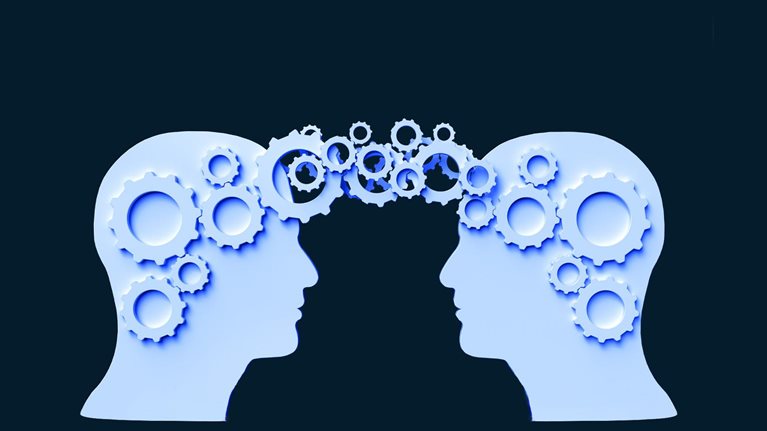
Davos is a modest ski resort near Zürich, Switzerland. But that isn’t why it’s famous. Every January, Davos hosts the annual meeting of the World Economic Forum (WEF). A highly curated group of delegates from global business, government, civil society, media, and academia converge on this Swiss town to address the most pressing issues of the day—and ultimately develop solutions.
In 2025, the annual meeting will be centered on collaboration in the intelligent age. We are living in a time of great risk as well as great opportunity. Increasing geopolitical polarization and divisions over values are wreaking havoc on communities around the world—at the same time, innovation and the use of rapidly advancing technologies offer an unprecedented opportunity to improve productivity and standards of living. Responding to such profound forces of change requires a new commitment to collaboration. The delegates of Davos 2025 will explore a range of themes: for example, identifying new sources of growth in the global economy, transforming industries in the intelligent age, investing in human development, building on actions to address climate change, and collaborating on solutions to both international and regional problems.
For more on WEF, the annual meeting in Davos, and insights on what lies ahead in light of shifting geopolitical dynamics, the climate crisis, and the ongoing advancement of technologies, read on.
Learn more about McKinsey’s collaboration with the World Economic Forum.
What is the World Economic Forum?
Headquartered in Geneva, Switzerland, WEF is an international not-for-profit organization focused on promoting cooperation between the public and private sectors. Founded in 1971 by German economist Klaus Schwab, WEF seeks to foster a spirit of collaborative entrepreneurship to address global issues and shape governmental, industry, and social agendas.
In 2020, WEF issued a new Davos Manifesto establishing that WEF is formally guided by stakeholder capitalism. This concept posits that a corporation should deliver value not only to shareholders but also to all those who have a stake in the destiny of the company, including employees, society, and the planet. Its goals include a commitment to “improve the state of the world.”1
WEF partners with many international organizations and corporations to run projects addressing global concerns. This year, collaborations are focused on reimagining growth, transforming industries in the wake of advancing technology, reskilling and upskilling workers, safeguarding the planet, and rebuilding trust within and among societies.
What is the Davos agenda?
Davos isn’t just about the keynote addresses. The meeting is also famous for the networking and social interactions that take place in corridors, side rooms, hotel suites, and restaurants across the Alpine town. “For me,” says McKinsey senior partner Kate Smaje, “Davos is all about making those unusual connections, where you get to talk to people who are doing very different things than you and being able to connect those dots and start to think about things in different ways. For me, it’s never about a session; it’s often about those coincidental meetings that happen in the margins of the sessions.”
Some 2,500 delegates and hundreds of others gather in Davos during this period, making it perhaps the largest assembly of global decision makers all year. As McKinsey senior partner Enno de Boer characterized the meeting, “It’s business speed dating on steroids.” For McKinsey veterans of the Davos meeting, connecting with clients takes center stage at the conference.

Looking for direct answers to other complex questions?
Who attends Davos?
In 2024, the annual meeting welcomed delegates from more than 100 governments around the world, from all major international organizations, and from WEF’s 1,000 partner companies, as well as civil-society leaders, up-and-coming leaders, the foremost experts in a range of areas, social entrepreneurs, and members of the media. Leaders in attendance included Antony Blinken, António Guterres, Emmanuel Macron, Jens Stoltenberg, and Ursula von der Leyen. Approximately 1,000 corporations are members of WEF, and each sends a small number of key delegates to the meeting in Davos based on their membership tier. Official attendance is by invitation only.
Meet McKinsey’s 2025 Davos delegation.
What’s on the Davos agenda for 2025?
This year, the theme for Davos is “Collaboration for the Intelligent Age.” The program will be oriented around five interconnected priorities:
- Reimagining growth. Given today’s geopolitical and economic realities, policy makers will need to look toward new sources of growth for the future. The digital economy already accounts for nearly 16 percent of global GDP and could form the basis for up to 70 percent of all new value created in the global economy over the next decade.
- Industries in the intelligent age. Technology is now the primary driver of change and disruption across business sectors. To take full advantage of the plethora of opportunities, leaders will need a new tool kit to help themselves, and their organizations, adapt.
- Investing in people. Technological advancements have created the need to reskill and upskill people to meet the demands of tomorrow’s economy.
- Safeguarding the planet. Partnerships and dialogues that enable investment and deployment of new climate technologies are critical to making progress on global climate and nature-related goals. A scaling up of ambition, governance, partnerships, and capital will be necessary to achieve net zero.
- Rebuilding trust. As the pace of change accelerates, societal divides have deepened as people around the world seek to reaffirm their identities. To move forward, stakeholders will need to find new ways to collaborate—both internationally and within their own societies.
When is Davos 2025?
The meeting in Davos will take place from January 20 to 24, 2025.
What happened at Davos in 2024?
Last time, the meeting was focused on rebuilding trust in an era of rapid change and increased fragmentation at three fundamental levels: in our future, within societies, and among nations.
McKinsey’s partnership with WEF for each year’s Davos meeting includes events and interventions that align with shared goals across geographies and institutions. In 2024, McKinsey’s knowledge collaborations with WEF were intended to foster global cooperation for sustainable, inclusive growth. Geopolitics and their implications for business was a critical topic at Davos in 2024, where delegates were also focused on an orderly, equitable transition toward the future of tech and the calculus between decarbonization and value creation.
What impact does Davos have?
WEF describes itself as a new kind of institution, with the adaptability, entrepreneurialism, and stakeholder trust necessary to make it a platform with the power to make change. The upheavals of the COVID-19 pandemic have, to many, underscored the organization’s ongoing value.
For McKinsey senior partner Tracy Francis, the value of the Davos meeting is in “the human interaction of a multitude of different types of entities—start-ups, nonprofits, governmental organizations, business. There’s a lot of talk about a new world order, but I do think that just being together in person and exchanging ideas increases connectivity.”
And while the spotlight shines bright on the best-known delegates, it’s the smaller interactions that can mean the most. “In Davos, I always like to meet the start-up or technology company that comes up with an idea that, if it works, could scale through the planet and change something,” says McKinsey senior partner and McKinsey Global Institute chairman and director Sven Smit. “You’ll find hope in these kinds of things. The big voices will be there, but the small voices bring a lot of hope.”
To keep up to date with McKinsey’s Davos coverage, visit McKinsey and WEF. Also, search for #davosagenda on social media and look out for live events with McKinsey experts in the time leading up to the January meeting. And stay tuned for Davos updates in your inbox.
Learn more about McKinsey’s collaboration with the World Economic Forum.
This article was updated in November 2024; it was originally published in January 2023.



